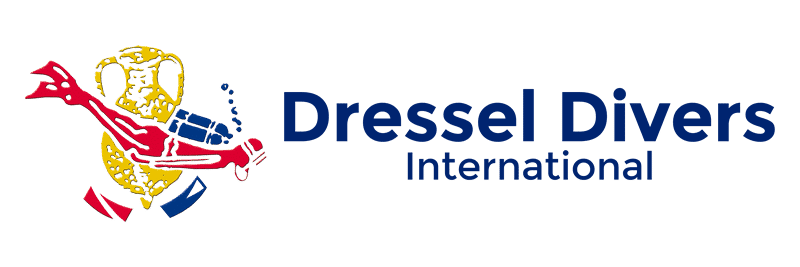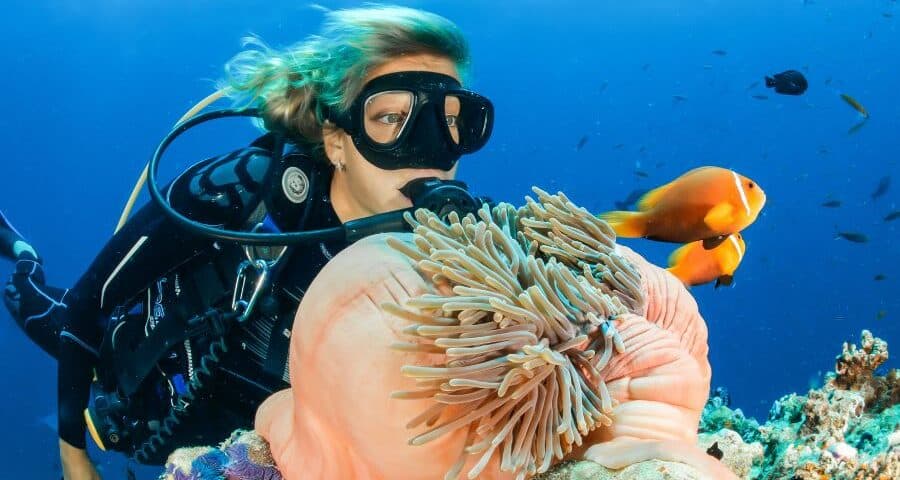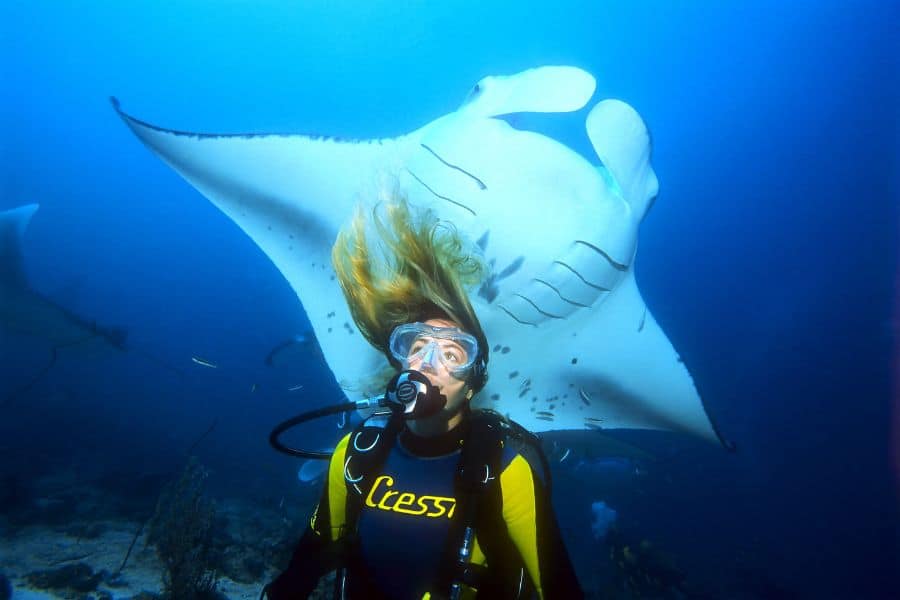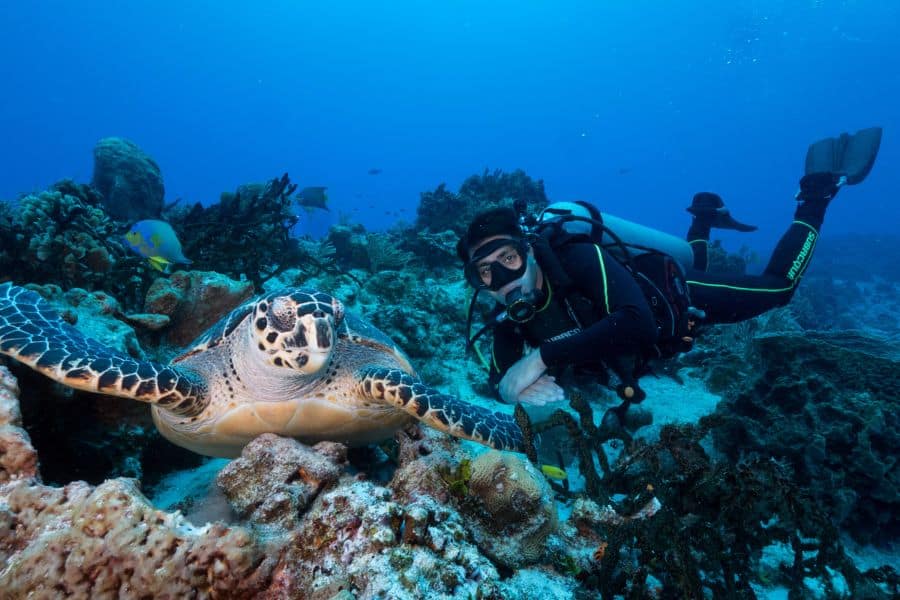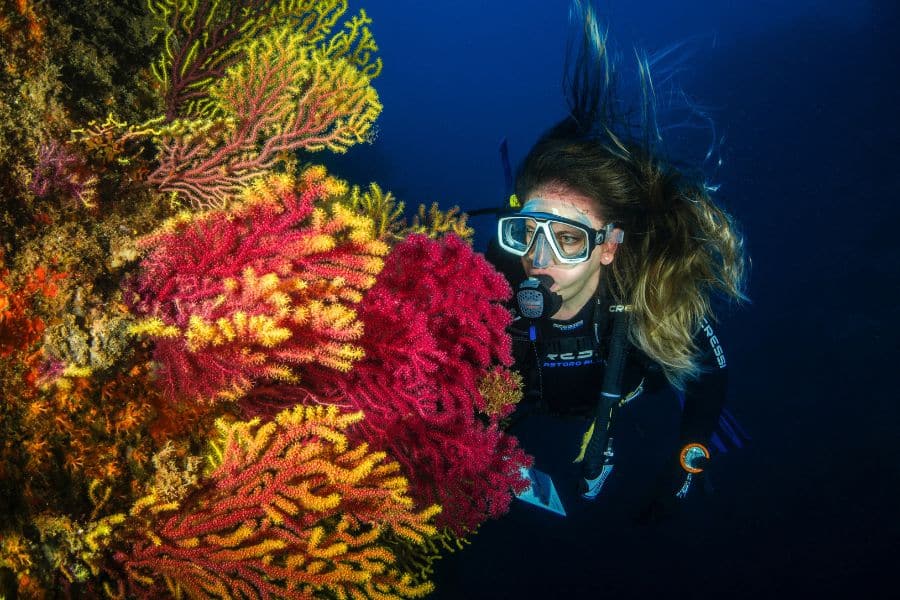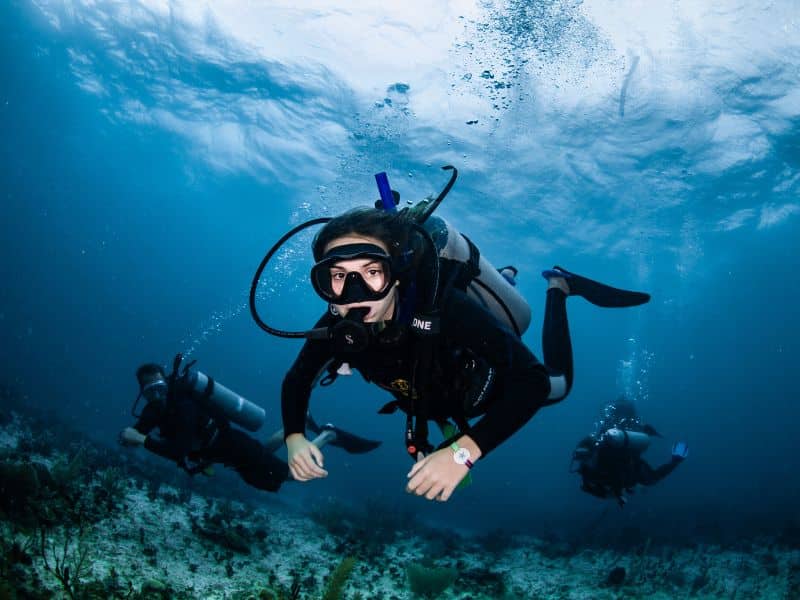1. What Is an Underwater Naturalist?
Who wouldn’t be excited to see hawksbill turtles busy crunching coral with their beaks to eat it, or an octopus giving a camouflage class? But an underwater naturalist goes beyond the “ooohs” and “aaahs.”
They’re like detectives of the marine habitat. Underwater naturalists dive to discover and understand the secrets of the ecosystem. So, we search for relationships between species, who eats whom, who lives with whom, and how they manage to live together in the same habitat. We don’t just want to see Nemo and his friends; we want to understand how their world works!
That way, when we see a moray eel and a grouper inspecting a reef together, we know they’re cooperating to hunt; that the shrimp willingly entering the mouths of other fish aren’t potential suicides or about to be swallowed, and that the bush over there, resembling a fan, isn’t a plant but small animal polyps gathering in that shape to feed.
Most importantly, by understanding these behaviors, we can help take care of the ocean.
2. What Skills Are Important for An Underwater Naturalist?
To be skilled at identifying underwater creatures and ecosystems, you’ll need these abilities.
The underwater naturalist is a proficient diver: mastering safe and responsible diving techniques, as well as having excellent control of buoyancy, trim, and fin kicks to move smoothly. They excel in underwater navigation and communication with dive buddies.
They have observational skills:
Observing without disturbing: it’s vital to observe and interact with marine life without disturbing them. There’s no other way to understand food chains and symbiotic relationships.
They possess a scientific spirit: they know how to classify animals, train their eyes to distinguish a mollusk from a crustacean without breaking a sweat, take detailed notes of their observations, including location, date, time, and environmental conditions, and research them later.
They’re often skilled underwater photographers and share their photos with other naturalists and diving enthusiasts to contribute to the dissemination and conservation of the marine environment.
They put their knowledge into action: all that knowledge comes into play during their dives. They’re aware of the impact their presence has on the underwater environment and dive responsibly.
